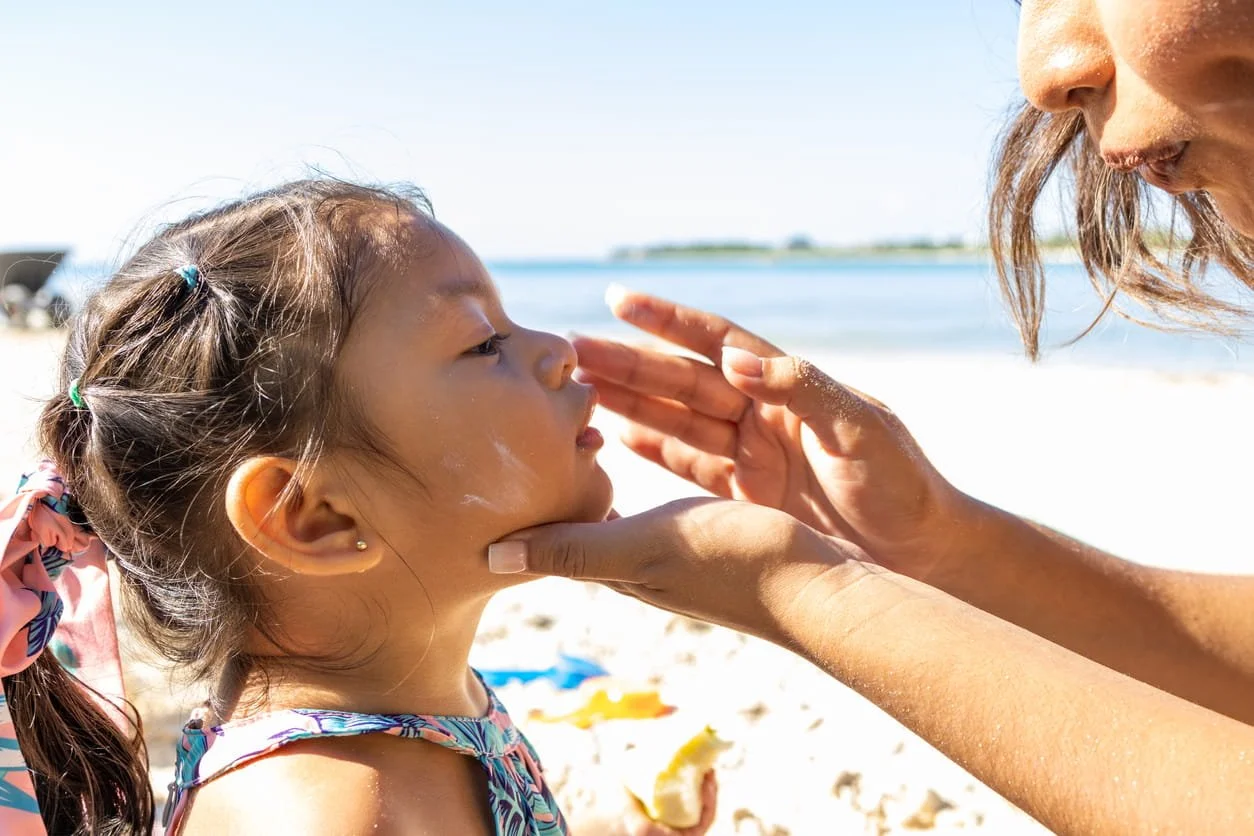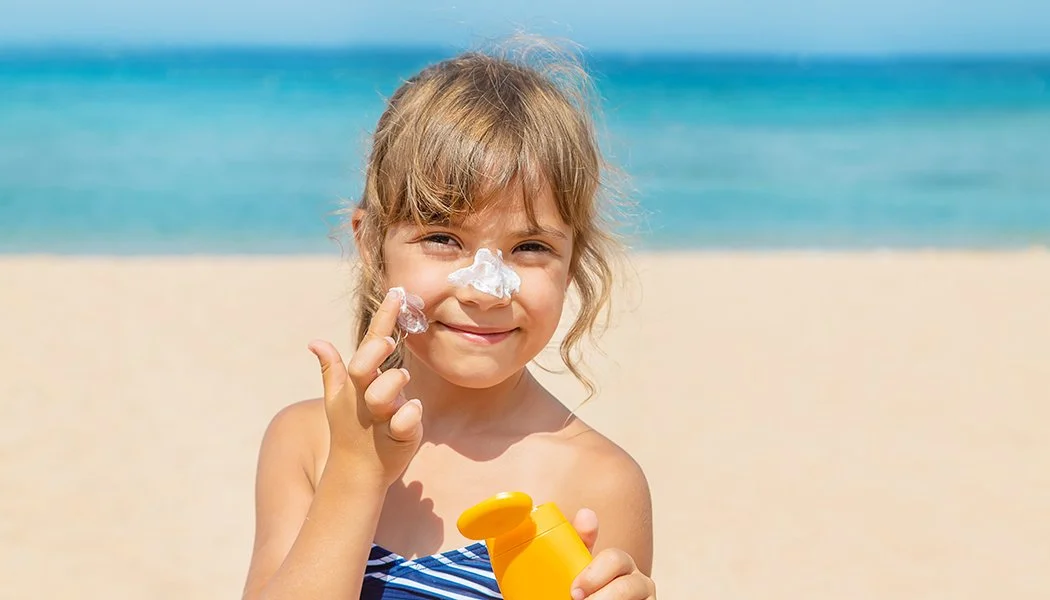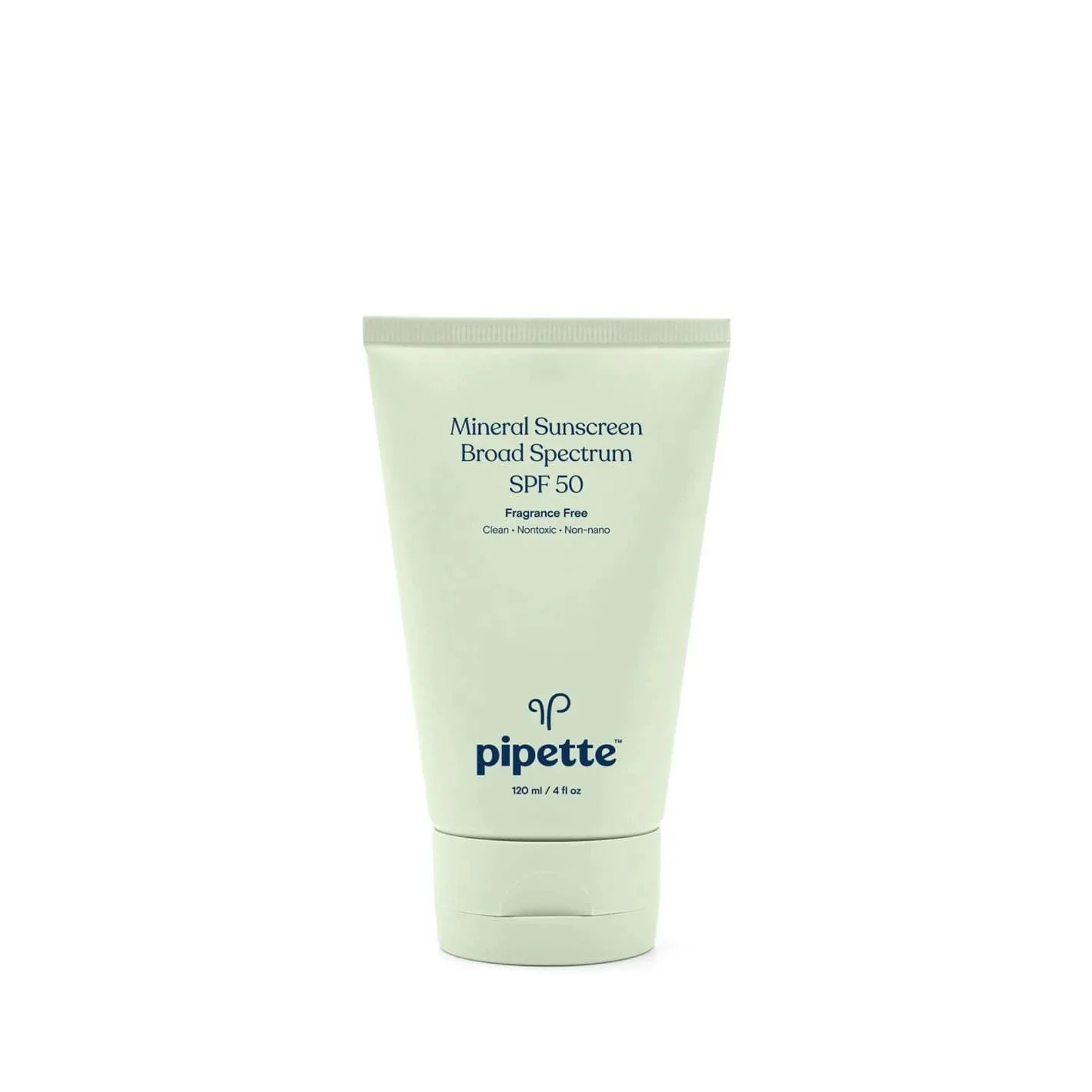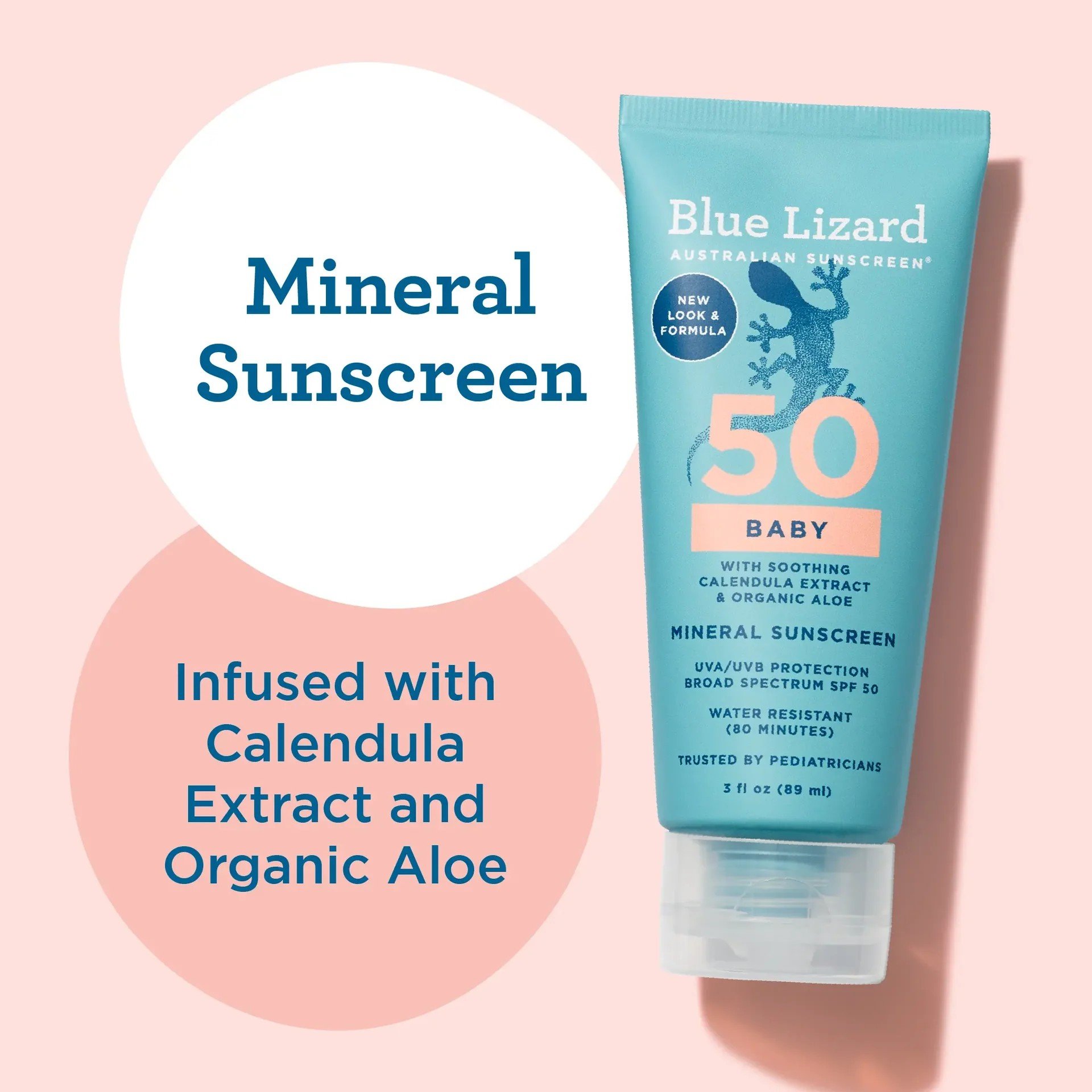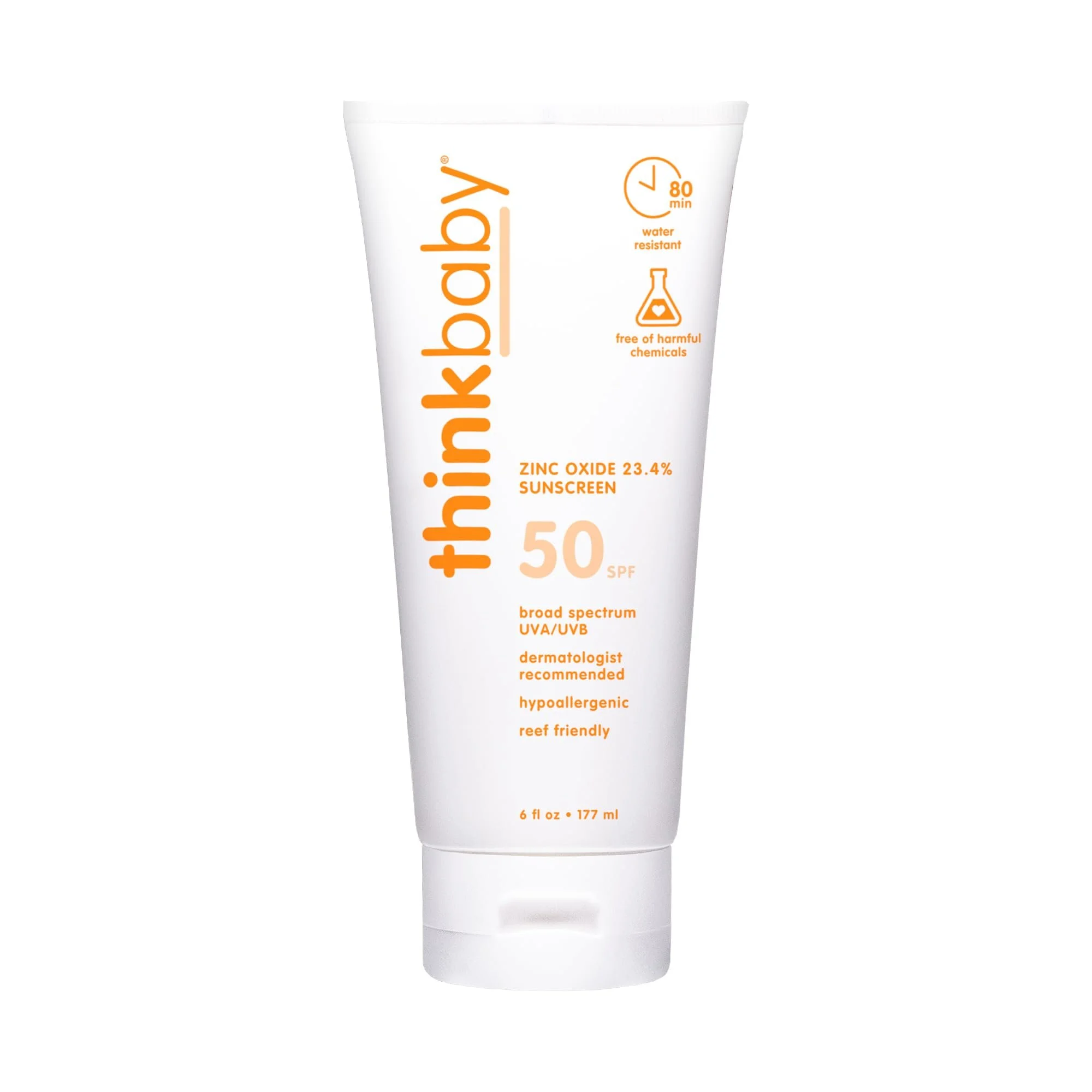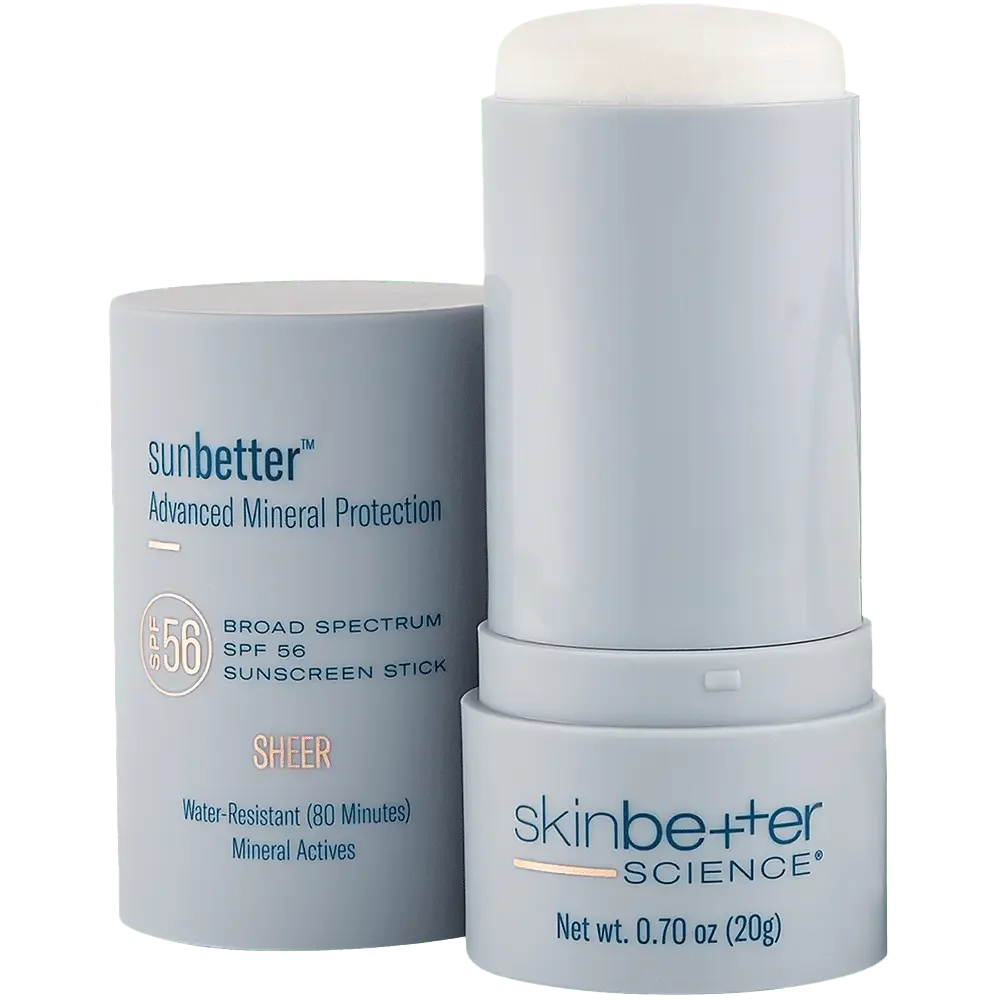Sun protection for Little ones
The Best Sunscreens for Babies, Infants and Children (and What Parents Need to Know)
Protecting your child’s skin from the sun is one of the most important ways to support lifelong skin health. While sunshine has its benefits, children’s delicate skin is much more sensitive to UV damage than that of adults. In fact, sunburns early in life can increase the risk of skin cancer later on, which makes proper sun protection essential—especially during summer or outdoor play.
Whether you're heading to the beach, going for a walk, or just playing in the yard, choosing the right sunscreen for infants and young children is a key part of your skincare routine. Fortunately, there are excellent sunscreen options that are safe, effective, and easy to apply on even the squirmiest little ones.
Why Sunscreen Matters for Babies and Kids
Children’s skin is thinner and more permeable than adult skin. This makes it more prone to absorption of chemicals, irritation and sun damage. Even short periods of unprotected exposure can result in sunburn.
For infants under 6 months, the American Academy of Dermatology as well as the American Academy of Pediatrics both recommend avoiding direct sun exposure altogether. The best protection for this age group is shade, wide-brimmed hats, and lightweight long sleeves. If sun exposure is unavoidable, a small amount of mineral sunscreen can be applied to exposed areas. It is best to choose a broad spectrum, physical blocker with at least an SPF of 30 or higher. Wash off the sunscreen once the baby is indoors. (See list below for some recommended sunscreen options).
For babies over 6 months and children of all ages, sunscreen should be a consistent part of your sun safety routine whenever you're outside.
What to Look for in a Children's Sunscreen
Not all sunscreens are created equal, and what works for adults may not be ideal for a child’s skin. Here are some important features to look for:
Mineral-based (Physical) formulas: These use zinc oxide or titanium dioxide to block UV rays by sitting on top of the skin. They are less likely to irritate sensitive skin and also have less of the traditional chemicals found in sunscreens.
Broad-spectrum protection: A broad-spectrum sunscreen protects against both UVA and UVB rays, reducing the risk of both sunburn and long-term skin damage.
SPF 30 or higher: SPF 30 is the minimum recommended for children but products with SPF 50 to 100 should be considered. Although SPF 30 in a perfect lab setting blocks 97% of UV rays, studies have shown that higher SPF products provide better protection in real world usage. This can be due to a number of factors including improper application (too thin of a layer), lack of reapplication, etc.
Fragrance-free and hypoallergenic: These options are gentler on sensitive skin and reduce the risk of rashes or reactions.
Water-resistant: Kids are often active outdoors, so choose a sunscreen labeled as water-resistant and remember to reapply every two hours, or after swimming or sweating.
Dermatologist-Approved Sunscreens for Children and Infants
We've narrowed it down to a list of top-performing sunscreens that check all the boxes for safety, ease of application, and effectiveness. These options are parent-friendly and well-tolerated by little ones.
Mustela Mineral Sunscreen Lotion or Stick SPF 50: Mustela’s mineral sunscreen is designed with babies in mind and is ideal for sensitive or easily irritated skin. It contains non-nano zinc oxide and titanium dioxide, rubs in better than many mineral options, and leaves very minimal white cast. It’s fragrance-free, tear-free, and safe for use on the face and body. It can be purchased in traditional lotion form or in stick form for ease of application.
Best for: Babies with sensitive skin, including those with eczema.
Pipette Mineral Sunscreen SPF 50: This mineral sunscreen is lightweight, fragrance-free, and made with non-nano zinc oxide. Parents love that it blends easily and leaves less white residue than many other mineral formulas. It's also clean-formulated and made without parabens, phthalates, or synthetic fragrances.
Best for: Parents looking for a gentle, clean, and effective everyday sunscreen.
Blue Lizard Sensitive Mineral Sunscreen: Named one of Wirecutter’s top 4 sunscreens of 2024, this dermatologist-favorite is known for its easy application and strong UVA/UVB protection. It’s fragrance-free, paraben-free, and formulated for sensitive skin. The lotion spreads well and dries without leaving a greasy finish.
Best for: Full-body application and long outdoor days.
Thinkbaby! Thinkbaby’s sunscreen is a favorite among parents looking for a non-toxic, reliable option for their kids. It’s made with mineral-based active ingredients and free from harmful chemicals, offering broad-spectrum protection without irritation. The formula rubs in more easily than many other mineral sunscreens, making application less of a struggle.
Best for: Safe and effective clean ingredients, smooth application without white residue.
EltaMD UV Stick Broad-Spectrum SPF 50+: EltaMD is a trusted brand in dermatology, and their mineral stick is gentle, water-resistant, and leaves little to no white cast. It’s great for toddlers and older kids who may resist sunscreen application—it goes on fast and feels lightweight.
Best for: Daily use on the face and ears, especially for active kids.
Skinbetter Sunbetter Sheer SPF 56 Sunscreen Stick: This premium stick offers high SPF protection and a completely invisible finish. It’s fragrance-free and great for all skin types, including sensitive or eczema-prone skin. Though it’s a bit of a splurge, the silky application and zero white cast make it a standout.
Best for: Kids who dislike the feeling of sunscreen or parents looking for a luxury option that truly blends in.
Tips for Easier Sunscreen Application
Getting sunscreen on a wiggly toddler or an impatient preschooler isn’t always easy. Here are a few tricks to make it less of a battle:
Apply sunscreen before leaving the house, when they’re less distracted.
Use sticks for the face and lotions or sprays for larger areas (sprays should be rubbed in thoroughly).
Make it fun by letting them help rub it in.
Consider using a sunscreen brush or sponge for face application.
Reapply often—every 2 hours, or sooner if swimming or sweating.
Why Choose Professional Dermatologic Advice?
If your child has sensitive skin, frequent rashes, or eczema, it’s a good idea to consult with a board-certified dermatologist. Certain formulations may work better for specific skin conditions, and a professional can help recommend products that are safe and well-tolerated.
At Cardinal Dermatology Center, we’re happy to guide parents toward products that support skin health for the whole family! We also offer samples from trusted skincare brands, so you can test them on your child’s skin before committing to a full-size product.
Keep Their Skin Safe All Year Long
Sun safety is important every season, not just summer. Consistent sunscreen use, even on overcast days, helps prevent sun damage and supports long-term skin health. With so many high-quality, easy-to-apply mineral sunscreens available, protecting your child’s skin has never been easier.
Visit Us This Summer
If you’d like personalized sunscreen recommendations or have concerns about your child’s skin, reach out to Cardinal Dermatology Center at 919-230-4016 or click “Book an Appointment” on our website. We’re here to help you keep your child’s skin healthy, safe, and sun-protected.

